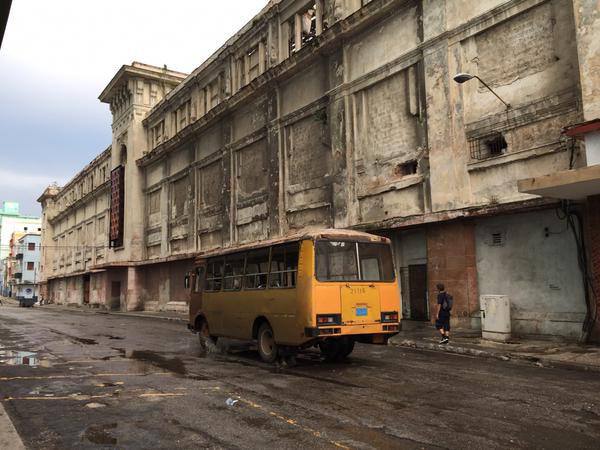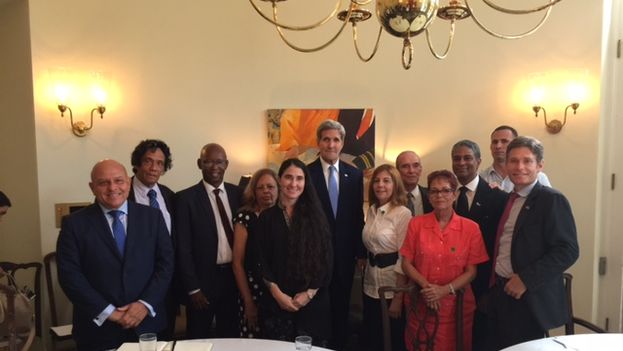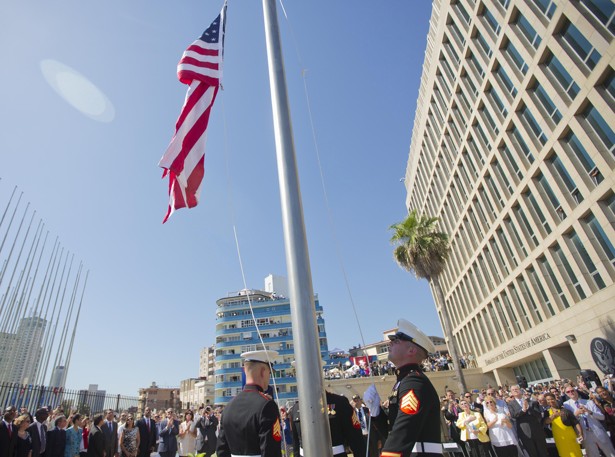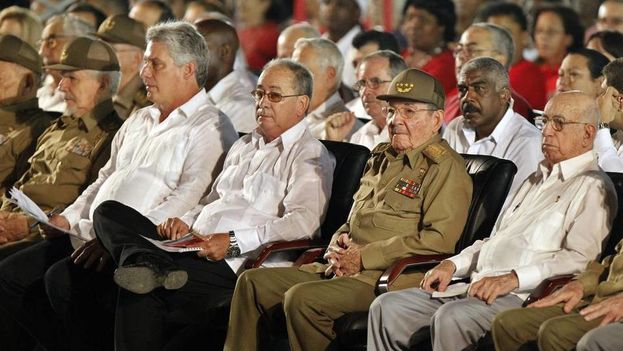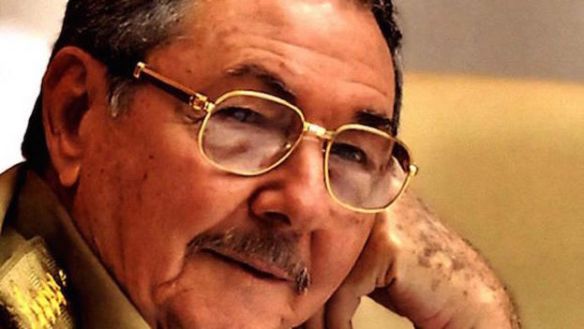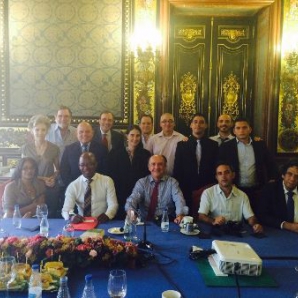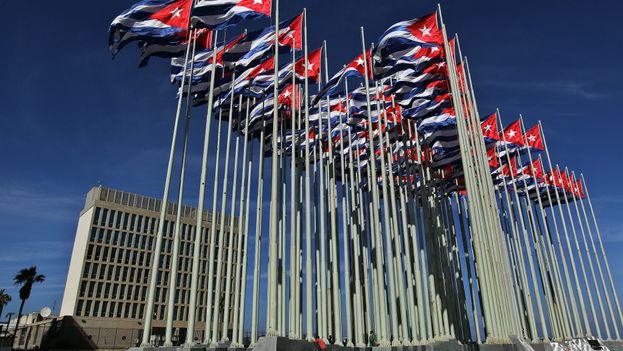
![]() 14ymedio, Yoani Sanchez, Havana, 25 August 2015 – A philologist by training, a dissident by passion, and an activist with the Patriotic Union of Cuba (UNPACU) by choice, Yusmila Reyna (b. 1976) is today one of the most important figures in the opposition. She speaks slowly, moves easily through technology issues and seeks perfection in everything she does.
14ymedio, Yoani Sanchez, Havana, 25 August 2015 – A philologist by training, a dissident by passion, and an activist with the Patriotic Union of Cuba (UNPACU) by choice, Yusmila Reyna (b. 1976) is today one of the most important figures in the opposition. She speaks slowly, moves easily through technology issues and seeks perfection in everything she does.
Since joining UNPACU, this woman has known how to leave the imprint of a part of her personality on the movement. This week we exchanged messages through the State Nauta service about the fourth anniversary of the opposition organization. In her free minutes between her young daughter and daily challenges, Yusmila responded to some questions for 14ymedio.
Sanchez. Four years after the founding of the UNPACU, what is the main challenge of the organization?
Reyna. To motivate and move thousands of Cubans to join the peaceful struggle for freedom. That is the great challenge of all opposition. Although we have achieved certain results, the reality is that we have much left to do.
Sanchez. Who are the members of UNPACU and how many are there?
Reyna. We have had many ups and downs in the course of these four years. Many have joined, but not everyone can bear the pressures of the repressive forces. Between the eastern region and Camaguey is where we are best organized. We now have about 2,500 activists. In the rest of the country we are not in a condition to establish numbers right now. In the central and western regions we are reorganizing, restructuring and trying to identify the leadership to sustain the fight. continue reading
We have had many ups and downs in the course of these four years. Many have joined, but not everyone can bear the pressures of the repressive forces.
UNPACU has members of all ages, but young people are the majority in our ranks, those between 18 and 45. A good portion of us are from the eastern provinces, Santiago de Cuba first of all, and we are humble people, working-class, young people who are unemployed and self-employed.
We have professionals and technicians, but the base is composed mainly of people who only finished high school, or even just the ninth grade.
Sanchez. The Cuban opposition has been strongly criticized for not being “connected to the people and not reaching ordinary Cubans.” How does this relate to the work of your organization?
Reyna. For UNPACU, we reach out in so many ways to the people I mentioned, principally in the east and in the Cuban capital, to thousands of compatriots who look to us and ask us for help to solve many of their problems. They look to us to denounce the injustices they’ve been victims of, to avoid an eviction, to get them medications, to help them in the construction of a humble abode. They also ask to use our audiovisuals, to help them connect to the internet and many other things.
In Santiago de Cuba, for example, there is no person who does not know our organization. Young people and teenagers are humming the music produced by our artists and they even threaten the police that they will get UNPACU to come when they harass them or try to stop the weekend parties. If everyone who sympathized with us joined in a peaceful protest we would fill several plazas. The challenge is to turn sympathizers into activists.
Sanchez. Right now UNPACU is the opposition movement with the largest number of political prisoners. To what do you attribute such marked repression against you?
Reyna. Currently there are 21 and since September of 2011 we are the organization with the most political prisoners in Cuba. More than one hundred members of UNPACU have passed through the regime’s prisons in the last four years. Political prisoners and repression manifest themselves to the extend that pro-democracy public activism manifests itself. It is a law of physics: every action causes a reaction. The more our activism annoys the dictatorship, the more their repression. We are developing a diverse struggle in many areas. Some areas are more repressed than others.
They look to us to denounce the injustices they’ve been victims of, to avoid an eviction, to get them medications
Sanchez. How does UNPACU view the normalization of relations between the governments of Cuba and the United States?
Reyna. Since last December we have said that we value the process of normalizing relations between the US government and the Cuban regime. We appreciate the solidarity of the US government with the Cuban people and independent civil society, and we are also grateful for the solidarity of governments and organizations of the old continent.
The protagonists of change must be Cubans, but solidarity is always necessary. In UNPACU we try to be realistic and never forget the feelings of the majority, the opinion of the people, our friends and the world in general. We always want to take the greatest advantage for the cause of freedom and open any space we can for freedom.
Sanchez. What do you expect from the visit of Pope Francis to Santiago de Cuba in September?
Reyna. We want to tell him that Cuba has not changed much since the visit of John Paul II and continues to be the same country that then Archbishop Pedro Meurice presented to the Polish pope. We hope that he can intercede for the political prisoners and be heard by Raul Castro. We will also tell him that the solidarity of the Church with the oppressed is always appreciated by many and that we hope his visit will be positive for our people and for the Church.

